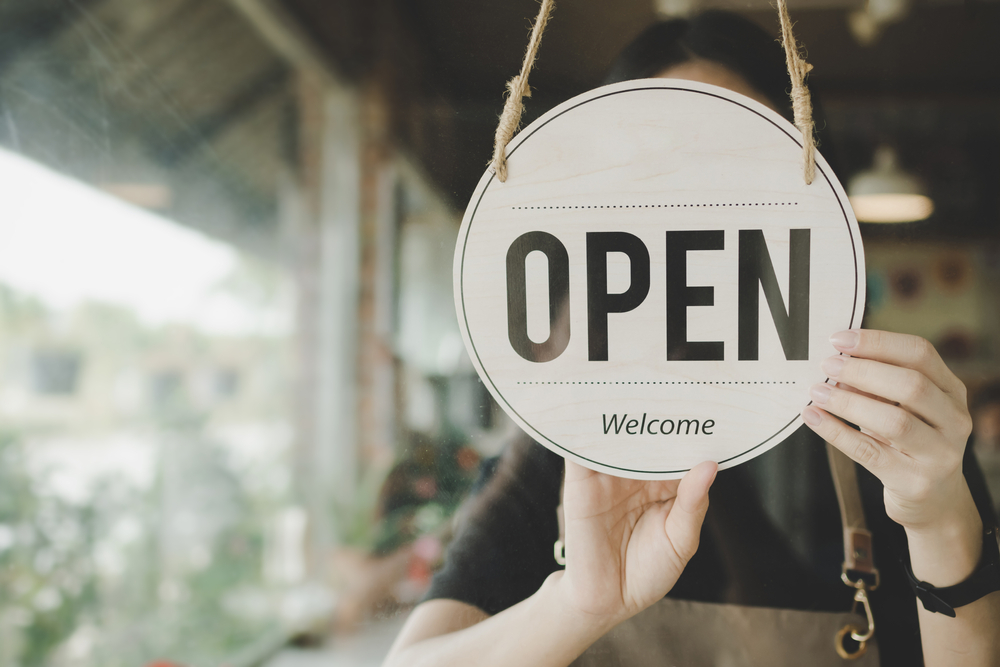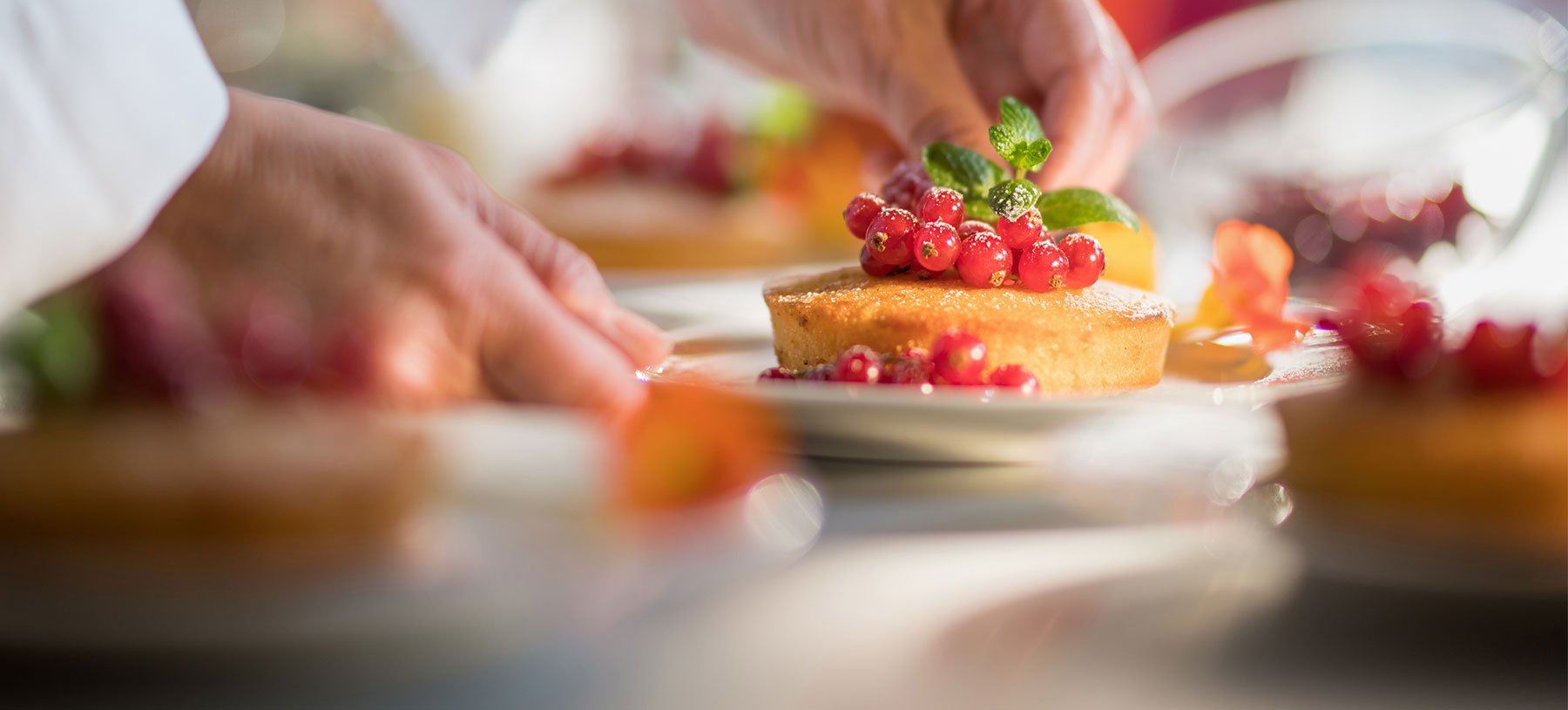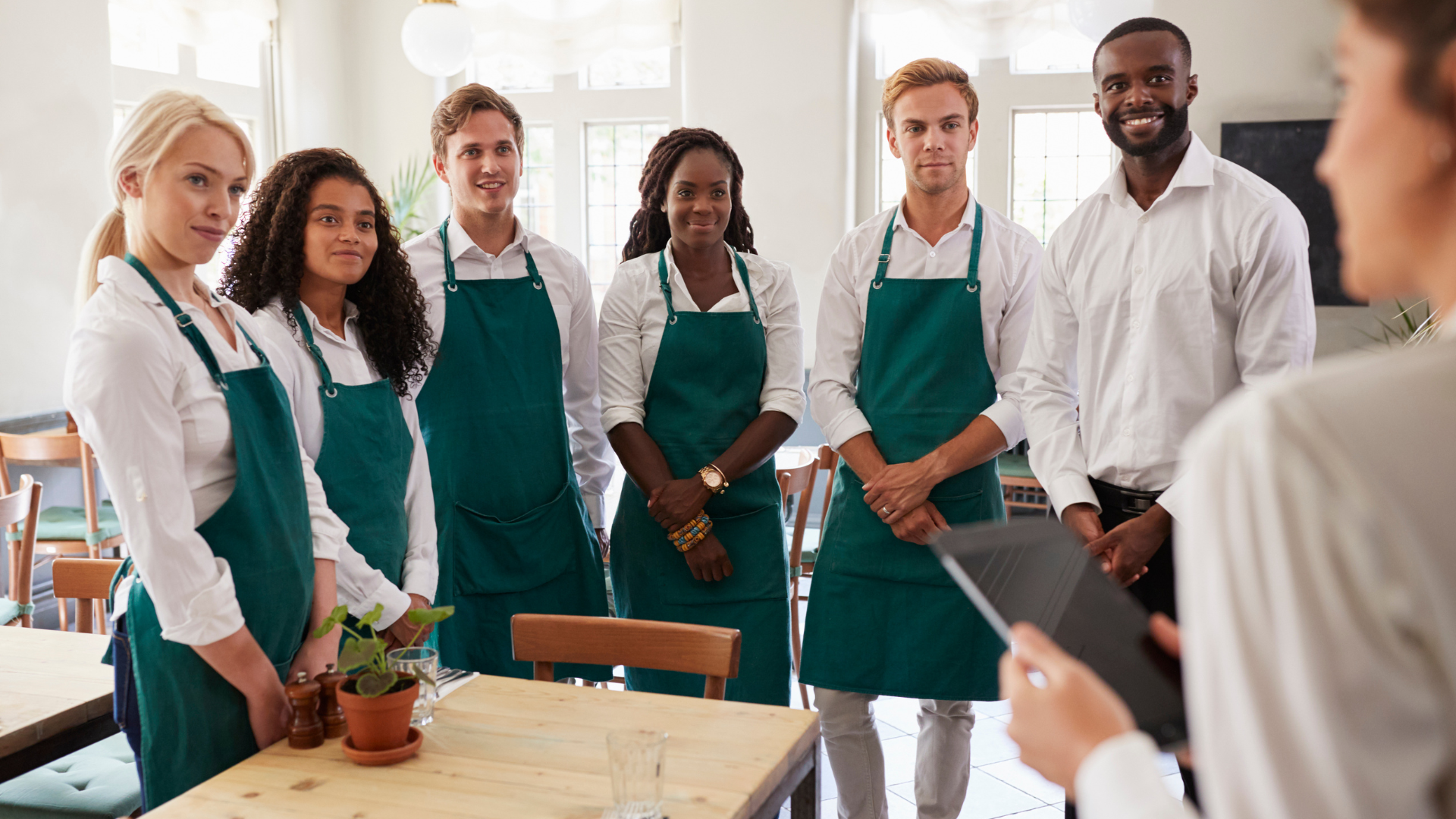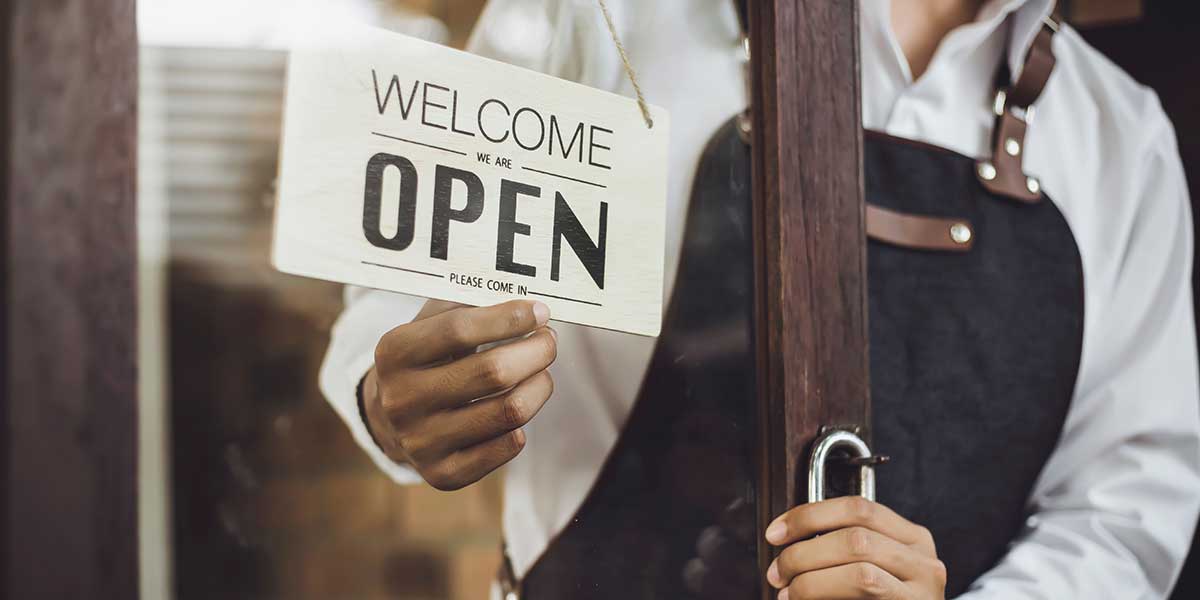Whether opening a cafe is a distant dream or in your near future, it's important to understand the costs associated with it.
There are so many different areas throwing costs in the way of prospective cafe owners. Our complete guide will take you through some of the key financial obligations you will face. It's the perfect way to understand the start-up costs for an Australian cafe and the specific areas you can cut down on costs.
How much does it cost to buy an existing cafe?
Beginning your cafe-owning journey by purchasing an existing business is an expensive undertaking. Commercial Real Estate currently advertises cafes on sale for a wide range of prices, from $65,000 to over $1.5 million.
Naturally, there are a huge range of factors that go into the price of an existing cafe business, including:
- Location
- Revenue and profitability
- Brand value
- Lease terms and property conditions
- Inclusions in the sale, such as stock and equipment
- Employees
Remember that purchasing an existing cafe business is by no means a get-out-of-jail-free card when it comes to the expenses associated with a startup business. You will still need to invest potentially hundreds of thousands of dollars to get your very own venue operating.
Cafe start-up costs Australia
Unsurprisingly, putting an exact dollar figure on the cost of opening a cafe in Australia is virtually impossible.
On a bare-bones budget and under the right conditions, you could open a cafe for approximately $100,000-$150,000. More realistically, you might expect to spend around $300,000 or more to get your venue off the ground.
Your costs might even exceed $1 million if you choose to purchase a commercial space or if you want to finance a high-end refurbishment.
Let's break down the key areas of costs for opening a cafe in Australia to give you a better idea of how much you should expect to spend as a budding cafe owner.
Major costs to open a cafe in Australia
Here is an overview of the major cafe start-up costs in Australia in a broad range of areas. This is by no means an exhaustive list, and depending on your situation you might have other major financial drains on your start-up.
Licences and permits
Before you can begin legally operating, there are a range of licences required to open a cafe. These can include:
- Local council permits: Many of the licences and permits required to open a cafe are provided by local councils at varying costs. These include a food business licence, a food safety supervisor certificate and an outdoor dining permit. The cost for these individual permits usually sits at around $100-$200.
- Construction certificates: Your cafe's responsibility for construction certification can vary greatly from venue to venue. However, you might be on the hook for hundreds of dollars to acquire a building certificate, fire safety certificate and other essentials.
- Music licence: The cost of obtaining a hospitality music licence from One Music Australia starts at $100.
- Trade waste permit: The price of a trade waste permit varies depending on the water provider who distributes it. For one example, Sydney Water's 2023-2024 maximum quarterly permit fees are $32.07, which equals $128.28 a year.
While the cost of the various licences and permits required for a cafe can vary greatly, all up you will likely be facing costs from $400-$1,000.
Real estate costs
Real estate is one of the most expensive aspects of opening up a cafe. Your choices here are to either purchase or lease a commercial space.
These options have the same pros and cons in commercial real estate as they do in residential. Buying a space requires the upfront cost of a deposit and ongoing mortgage payments.
Conversely, renting a space requires more minimal upfront costs. However, renting can be even more expensive than paying off a mortgage. There is also the obvious difference that when you rent a space, you do not own it and thus do not have an appreciating asset.
The cost of purchasing or leasing a commercial space to operate a cafe varies wildly. Sites such as Commercial Property Guide advertise commercial retail spaces to lease in central Sydney for approximately $100,000 per annum. Often, the further you head from the centre of Australia's cities, the cheaper your costs will be.
Meanwhile, Commercial Property Guide advertises retail properties for sale in this same area for prices ranging from around $300,000 for extremely small spaces to $1.4 million.
Upfront costs associated with beginning a commercial lease can include legal fees in the thousands of dollars and the price of your bond. No matter which route you take, the start-up costs relating to real estate in Australia are significant.
Refurbishment costs
Oftentimes, your commercial property will not have all the trappings required for you to open for business. In some cases, a full-blown cafe fit-out might be required.
A cafe fit-out is a process of turning a property into a space fitting for a cafe. This involves both the front-of-house dining area as well as a back-of-house commercial working space.
Basic fit-out costs for a cafe cost around $1,800 to $2,200 per square metre. If your cafe is 150 square metres in size, this could place the cost of a simple fit-out at $330,000.
Whilst a cafe fit-out is a fairly comprehensive refurbishment, you will still have to reserve funds for your interior design and furniture, which can also range up to $10,000 and beyond.
Culinary equipment costs
Another area with a wide range of potential costs is cafe equipment. From coffee machines to kitchen equipment, there are plenty of items to think about in this area.
Here are some of the major expenses you can expect to open your wallet for when you start up a cafe:
- Coffee machine: The price of a commercial coffee machine in Australia is one of the major expenses when it comes to cafe equipment. Commercial coffee machines can cost as little as $2,000 and range up to $20,000 for larger models with greater functionality.
- Coffee grinder: Another fundamental piece of cafe equipment, a high-quality coffee grinder generally costs at least $750 with prices ranging up to $4,000 and beyond.
- Refrigeration: A display refrigerator for a cafe can be as affordable as $800 for a smaller model, and up to $10,000 for larger appliances. If you need to purchase refrigeration for your kitchen, you can expect to spend at least $1,500 per appliance.
- Ovens: Full-size commercial ovens can go for upwards of $100,000.
- Dishwasher: A commercial dishwasher is a massive back-of-house timesaver. They don't come cheap though, generally setting restauranteurs back between $2,000-$10,000.
- Blender: What's a cafe without a range of morning smoothies? Simpler models can be yours for around $700, but you may end up spending upwards of $3,000.
- Dining equipment: Cutlery sets on offer for a food service business can be relatively cheap. From the right seller, you might be able to get a full set for under $60. Crockery sets are more expensive. It will likely cost a minimum of $300 to get all the plates, bowls, cups and more you need to begin operation.
This selection is just the tip of the iceberg when it comes to the cost of cafe equipment. With the right cost-cutting measures and depending on your needs, it's possible to bring your costs in this area under $50,000.
But if you're interested in purchasing higher-quality equipment, you shouldn't be surprised to spend over $100,000.
Technology
In addition to the costs of your culinary equipment, you will also need a range of technology-based systems to get your cafe up to speed.
First and perhaps most important is point-of-sale systems. These systems allow you to engage in sales transactions with customers, accept digital payments and much more. Upfront costs can range up to $2,000 depending on your needs and whether you already own relevant equipment.
Next, you should consider investing in a table management system. Table management systems are best known for handling your reservations. They enable you to accept bookings, deal with customer queues and much more.
Instead of relying on a paper diary, you can use an online booking system to enable you to see which customers are seated where, how many walk-ins you can accept and share information to different areas of your restaurant.
There are plenty of other areas where you might want to spend upfront money on technology to open a venue. These include:
- Marketing systems such as email and SMS marketing
- Event management software
- Online ordering systems
- Gift voucher software
- Automated phone systems
Sounds like a lot to contend with. The good news is that all of these functions – including EPOS systems – are included in ResDiary. See our pricing page to learn more about setting ResDiary up in your new venue.
Opening inventory
Finally, before you can have your grand opening, you will need food and drinks to serve to your customers.
Your opening inventory of food and drinks includes basic inventory items such as coffee beans, tea, milk, flour, sugar, vegetables, meats, non-perishables and likely much more. Given Australia's strong coffee culture, you shouldn't skimp on the costs of your beans and other coffee-related items.
You should also consider your beverage inventory, such as soft drinks, bottled juices and more. Fancy a pastry window? If you aren't making them on-site, you will also need to purchase these items.
Establishing your initial inventory could cost between $5,000 to $20,000 or more. Over time, you will be able to establish relationships with your suppliers and gain experience which should help bring recurring costs down.
How to fund a new cafe business
Unsurprisingly, the costs of opening a cafe in Australia are extremely high. You will likely need to rely on external funding to get your dream venue into operation.
Common sources of financing for new hospitality businesses are:
- Business loans: A business loan generally comes from a bank. If you can convince the institution that you will be able to pay off your loan and interest, they will provide you with a sum of money to help get your business off the ground.
- Private investors: Private investors can include angel investors, venture capitalists and private equity firms. Generally, you can come to a more bespoke, custom-built agreement with a private investor compared to a bank.
- Crowdfunding: An increasingly popular option in the Internet age, crowdfunding utilises sites like Kickstarter or GoFundMe to connect you with users who are interested in seeing your business come to fruition. They fund your business in exchange for rewards decided by you.
- Friends and family: A strategy used by the founders of Dyson, Starbucks and Google, relying upon friends and family to fund your venue is often more achievable than getting more formal loans. However, you run the risk of damaging your personal relationships if things go south.
- Government grants: In some instances, your venue may be eligible for financial assistance packages offered by federal and state governments. Check out the Australian government's guide to grants and programs offered to new businesses for more information.
For more information, check out our complete guide to getting funding for a new restaurant.
Get your venue off the ground with ResDiary
Opening a new cafe is a hectic endeavour. That's why ResDiary is the perfect choice for simplifying the process.
ResDiary combines a broad array of functions into a simple, affordable package. This includes a table management system, a waitlist app, an automated phone system and tools for promotion.
Better yet, ResDiary includes over 60 integrations, bringing even more value to your business. These integrations include EPOS systems, booking partners and more.
Find out how your new cafe venture can make use of this versatile platform.



